So I Just Started My Short Story Writing Class! These Are Dialogue Tips From Janet Burroway’s Writing
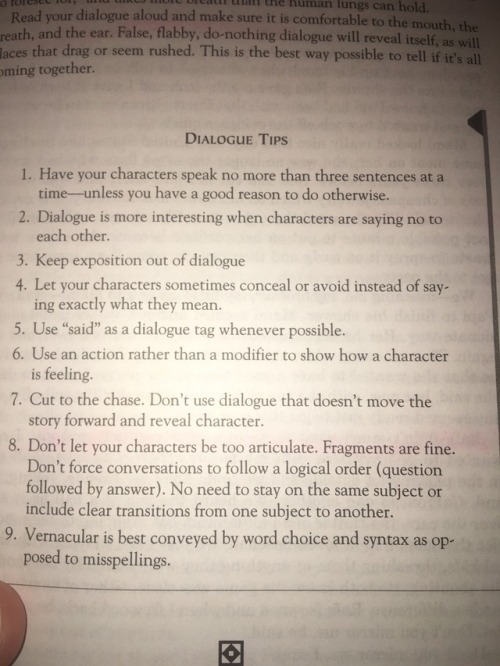
So I just started my short story writing class! These are dialogue tips from Janet Burroway’s Writing Fiction: A Guide to Narrative Craft
More Posts from Lune-versatile and Others
we always say that writing improves with practice, which is true & good to remind people of, but i think we fail to emphasize that literally every part of your writing will get better with time and effort. sure, your prose will become clearer and more sophisticated, but it’s so much more than that.
you’ll become so much faster, for one thing. if it takes you two weeks to complete a 3k chapter when you start out, you’ll eventually reach a point when you can crank that out in a matter of days. maybe right now your story ideas are like a dripping faucet–slow, random, and occasional. well, the longer you let that faucet run, the more your ideas will start to flow, until suddenly you’re finding inspiration in everything. the length and complexity of your stories will grow too. you might start writing stories in the 2-10k range, but you’ll eventually find that you’re writing 20-30k stories without even really intending to.
of course your style will improve. of course your imagery will become richer. of course your syntax will start to flow better. but there are so many other aspects of the writing process, and literally every single one of them will start getting better too.
write EVERY DAY. here's how.
where inspiration fails, habit will always have your back. this is why it's important to build writing into your life as a habit, if you ever want to finish a project or improve your skills.
back in 2018, i (nat) was a college student without much going for me. i was feeling creatively stifled and insecure and like i didn't have TIME to write good. and i was right. i didn't have time to write GOOD. but i did have time to write SOMETHING. so that january, i built the habit. i wrote every single day in 2018, and almost every single day since.
because once you establish the habit, it becomes safer to skip a day (or three days) here and there. you will at least THINK about writing every day, even if you go straight from work to social plans to bed, or you're on vacation, or you're too sick to write. and that thinking is part of the habit!
here are the tips i followed to make this happen.
-pick a reasonable goal. starting off, mine was 300 words. now, i don't follow a goal, because the habit is so solid i don't need to. but 300 words is easy and quick. and if you give a pig a pancake, they'll probably have days where they write 500, 1000, even 3k words.
-log your word count. this is interesting to look back on every new year's eve, and it provides accountability. do this however you like; a spreadsheet, a physical notebook, a note in your phone, each day's section in your planner, whatever works for you. i have a channel in my personal discord server where i log mine.
-do NOT edit as you go. just write write write. if you feel like something you wrote needs work, yeah, it probably does-- everything needs to be edited, but that's a problem for later. highlight sentences you can't get right or make note of them to edit LATER. but do not edit as you go!
-write self-indulgent crap. fanfiction, shitty poetry, manifestos, rants, self insert fantasy romance, whatever floats your boat. having a shitty self-indulgent backup story to work on when i didn't feel like writing for the projects i cared about really helped get me in the habit. write for an audience of one!
-journal if you can't write. this may not necessarily build your skill as much as writing regular prose would, but it does help you maintain the habit and it can be useful in lots of other ways.
-think outside the box. write trivia questions. write a list of your favorite childhood toys. write a review of the book you're reading. i'm writing this post, that's going toward my word count for the day. again, this is still writing, and it helps maintain the habit.
-get comfortable writing on your phone. this took me a long time, but making it over this hurdle has saved my habit so many times.
you'll be surprised at the cool shit you end up writing on those days when you swore you weren't inspired enough. and you'll be delighted with how much progress you will make honing your craft!
happy writing! if you have any questions about how to implement any of these tips, our ask box is always open.
Can you hear your characters?
I have a whole lot of trouble making my dialogue sound natural if I don’t know what my characters sound like. Having a strong sense of their voice can help distinguish your characters from each other, show their personalities, and make them more engaging to readers.
Here’s some details to think over if you’re trying to nail down a character’s voice:
Speed
Pitch
Volume
Accent
Vocabulary
Amount spoken
Willingness to speak
Stutters
Hesitations
Repetitions
Quirks
Common phrases
Other questions to ask:
Do their voices or the way they talk change depending on who they’re talking to or the situation they’re in?
How can their personality come through their voice? Their sarcasm, empathy, awkwardness, etc.
What in their backstory contributes to the way they talk?
When they make a statement, how often does it come off as unsure or questioning, versus confident and factual?
How does their voice relate or coexist with their body language?
i know it’s been said before, but it bears repeating: a big, big part of maintaining your confidence & self esteem as a creator is fully embracing the concept of “you don’t have to be good like them. you can be good like you.”
for example, i’m not someone who’s particularly good at coming up with complex, elaborate plots or incredibly unique ideas. it’s just not how i choose to write. and it would be easy for me to look at someone with an elaborate, super unique plot & decide that because i don’t write like that, i’m not a good writer. after all, unique plots are good, and my writing lacks those, so my writing must not be good, right? well, no, actually. i just have different strengths, like taking a simple premise & digging super deep into its emotional depths. that’s what i do well & it isn’t any better or worse than people who do elaborate world building or come up with really creative and unexpected plots.
your writing is never going to be all things to all people. it just isn’t. inevitably, you’ll have to make creative choices that favor certain aspects of writing over others. there is truly no getting around that & it’s honestly a good thing, because it means you’ve developed your own style. but you’ll always encounter other creators who posses strengths that you don’t. it doesn’t mean one is better than the other or that your writing isn’t good enough.
comparing yourself like that would be like taking a piece of pizza & a cupcake & going “oh no, that cupcake is so sweet & my pizza isn’t sweet at all.” or “gosh, the garlic crust on that pizza is delicious and my cupcake doesn’t have ANY garlic.” obviously your pizza isn’t sweet. obviously your cupcake doesn’t have garlic. a food can’t have every single delicious flavor at once. the cupcake is good like a cupcake. the pizza is good like a pizza. so you don’t have to be good like them. you can be good like you.
u know what, even if my writing isnt the BEST, i still made it all on my own. like there was a blank word doc and i filled it up with my own words, my own story. i took what was in my head and i made it a real thing. idk i feel like that alone is something to be proud of.
“I’ve found most authors have the wrong mental picture of the process. Instead of a sprint, publishing is more like a marathon. Slow, steady and consistent action will get you your audience and success.”
— W. Terry Whalin




dreamy, cluttered apartment 🌿📚☕
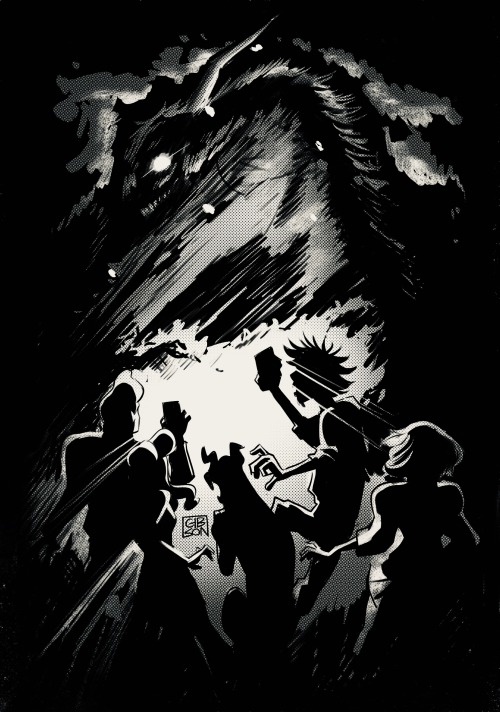

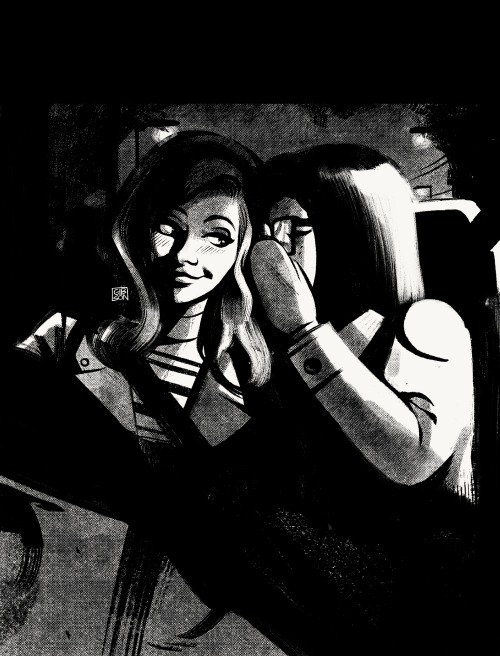


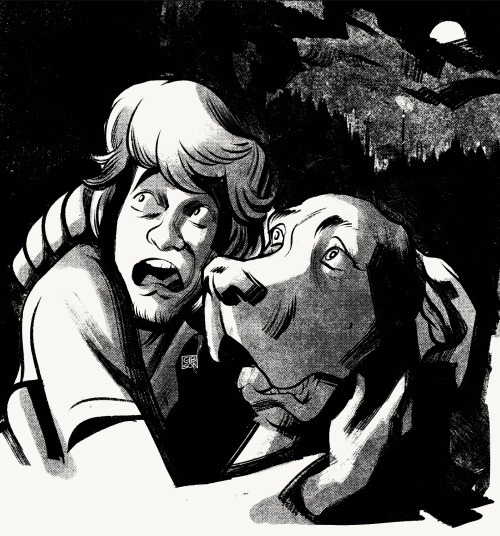
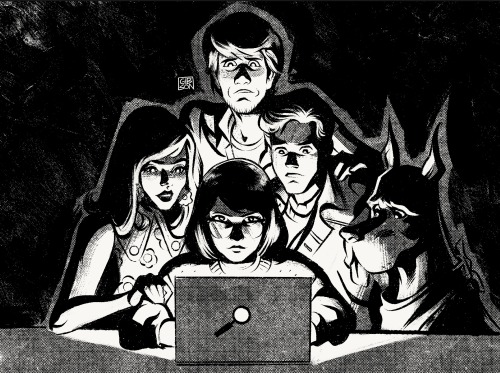
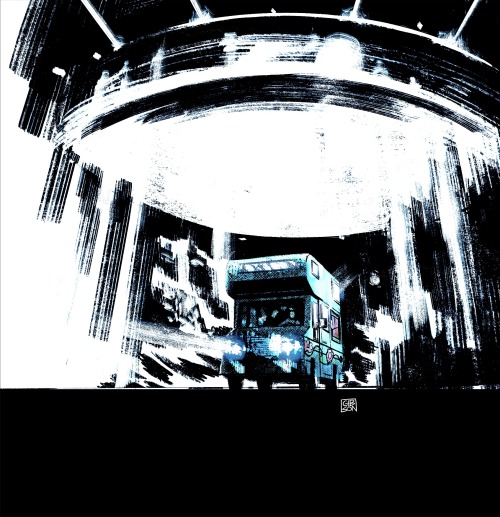
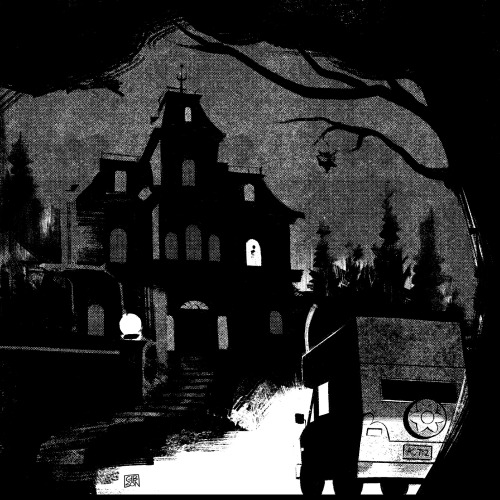
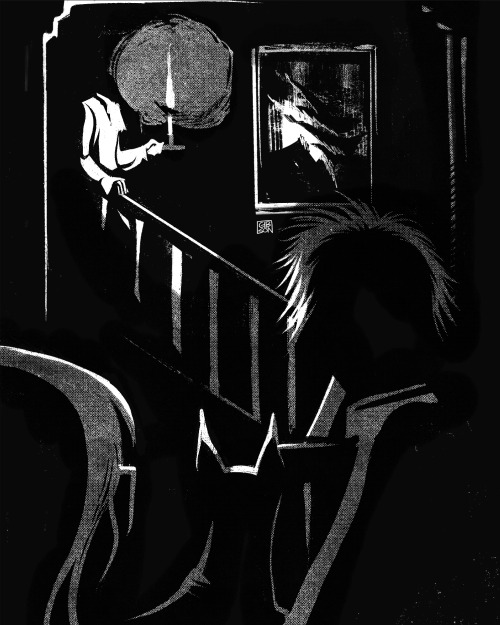
Mystery Inctober, #1-10
instagram | storenvy | portfolio | twitter
Pls make a list of books you recommend to aspiring writers<3
Ok. Aspiring/burgeoning writer starter kit:
In writing anything you officially become a writer so that’s step one haha, no need to aspire too much. BUT. I’m going to soapbox for a bit using this ask as an excuse love u kissing u etc. So. This will barely be about books, but sort of the recipe of what I (personally and subjectively) think will help anyone who wants to grow their craft. (I know because I've been writing seriously for 14 years)
The act of writing is the best practice you can get but having a well from which to draw on creatively and skill wise in order to DO that practice is the trickier part. And sometimes we can be found lacking because we’re either NOT refilling that well enough, consciously enough, or only with the same sorts of things so it gets stagnant. This is a long one so I’ll shove it under the cut haha.
The recipe:
Study craft
Broaden horizons
Diversify consumption
Consume with intention
Apply with reference
1) Study craft: this is the easiest to make sense of, right? I want to get good at writing so I read books about writing yada yada. Whatever you’re writing, it’s made up of a lot of moving parts, and you can dedicate time studying EACH PART, but figure out what you have the least experience with, or the most difficulty with, and start there. Also, before I go on to preach about why you shouldn’t solely stake your growth on some dusty old books, here’s some dusty old books I recommend:
The Elements of Style (strunk/white/kalman) (really quick and abbreviated advice, read every bit of this but remember: rules are important to know so you can decide which are worth following and which are in need of breaking for the pursuit of your goals. And nobodies perfect, or editors wouldn’t have a job)
Bird by Bird (Anne Lamott) (excellent work about fostering a process, important for everyone who finds themselves a little lost on how to just. Start)
Wonderbook (Jeff Vandermeer) (I haven’t read this one but knowing Vandermeers work this is on my TBR and I KNOW it’s going to be enlightening)
How to Read Literature like a Professor (Thomas C. Foster) (perfect for those who can see others stories working but unsure how to make their own work, I personally didn’t read much of this one but this will help people to more critically engage with what they’re consuming)
Save the Cat Writes a Novel/Joseph Campbells Hero’s Journey/On Writing and Worldbuilding/etc (all of these are on structure and craft in a concrete sense), I would recommend either choose one OR getting the abbreviated/digestible versions through YouTube because a lot of these can repeat themselves. I’m working on a playlist of writing craft/structure videos that I found helpful, so keep an eye out for that)
So. Studying craft should be a multidisciplinary process. Articles online, videos on niche media, books on craft or copying things from your favorites, looking for yourself in the movies you watch or fiction you read. Punctuation, prose, structure, rhetoric, character, world building, pacing, etc. Unfortunately, no matter how seasoned you become as a writer, you will always be learning new things about the craft itself.
It should be fun and I honestly feel like an enlightened little scientist when I see something that really cracks the open the magic for me (ex: scenes that serve more than one purpose are OF COURSE going to be more engaging that scenes with only one purpose- duh) (of COURSE magic systems should have a cost) (of COURSE the characters cant always win OR always lose)
2) Broaden horizons: consuming fiction and studying it is key to knowing how to reproduce it. We start with the training wheels of imitation before we ride away full speed into truly unique original storytelling. But the most impactful and thought-provoking stories are more than just fiction, so you need to know more than stories. Science, history, art, craft, math, music, cooking, psychology, religion, whatever!
Everyone always parrots “write what you know”, but what you KNOW can expand to influence what you write- so keep learning new things all the time and for fun, because you never know what could help your story. Your knowledge is not limited to experience alone, and research is your best friend. ASOIAF was so loved because George RR Martin loved not only fantasy, but British history. The Folk of the Air series is so loved because Holly Blacks special interest is faeries.
Note: this does not mean the study of OTHER PEOPLES trauma and experiences in an appropriative way, rather, become worldly. Because sure, knowing what a gunshot feels like adds realism, but I don’t care about realism if I don’t care about your characters or world. Science fiction is the best example of this: so many of those stories stick with us generationally because they’re pointing a lens back at humanity, asking big philosophical questions with science, which is something that touches us all.
But it doesn’t even need to be Big and Thematic like that. My dear friend @chaylattes has a project where she’s applied her love of plants to the world building AND plot, and has INVENTED whole plant species that enriched their work with something so exclusively Chay. No one else could write Andromeda Rogue because Chay, with specific interests and knowledge, put that specificity into the story.
3) Diversify consumption: surrounding yourself with more of the same means you’re going to regurgitate the same, derivatively. To be a hater for a moment: I can tell within the first chapter if someone only reads/watches one kind of media (m*rvel, fairy smut, grim dark nonsense, etc), and it’s distracting. When I read that derivative work, I’m not thinking about THEIR story. All I can think of is the people who did it first, and better.
Alternatively, the best work draws on the unexpected. Fantasy work taking notes from horror, science fiction including humanistic romance, romance with elements of mystery. RF Kuangs work feels so smart because she’s literally a PHD candidate who’s reading of academic writing. Cassandra Clares work is so interpersonally messy and hard to look away from because she watches a lot of reality television.
Genre is less a set of cages to lock yourself inside of and more so the sections of a great big fictional playground- and you need to start playing. Rules, again, are guidelines that can be bent for the sake of your stories. I predominantly write scifi/fantasy/horror but some of my favorite stuff is literary fiction, historical nonfiction, thrillers, and poetry.
And if you can’t bring yourself to read different genres, it takes significantly less effort to WATCH different genres. Television and film are stories too, and can absolutely be learned from.
4) Consume with intention: this is easier said than done. I, embarrassingly, admit that I did not have any reading comprehension skills until I was at least 19. I was consuming, but I wasn’t thinking a damn critical thought, just spitting it back out in a way that sounded smart.
Critical thinking skills (I say, on the website that historically lacks such a thing) are a muscle that needs to be exercised just as often as your writing muscle. Reading new work, studying craft, learning new shit- none of it matters if you can’t APPLY it all to a story. One can take a clock apart to learn how exactly it ticks, but it won't tell time like a watch until you put it back together.
The key is asking questions, all of the time about everything. That whole “why the curtains were blue” nonsense comes to mind, but if you want to be a good writer, (edit: a writer that cares about whether or not their work is vapid imitation of better work) learning to ask WHY the curtains are blue really does matters.
Ask why in ALL stories you consume, including your own. Why do Ghibli films make me feel calm? (Motifs of undisturbed nature, low stakes plots and quiet scenes of reprieve between action, characters that care about one another and aren’t afraid to show it) Why do I fly through a Gillian Flynn novel but take 8,000 years to read other books? (Concise descriptions, realistic but evocative premise, witty voice, contained and fast paced plot, an abundance of questions driving the mystery leading up to a satisfying crash of answers at the end) Why were the curtains blue, the coffee cup chipped, and the lipstick stain on the rim red instead of purple or pink? And why did the colors matter at all when the scene is about a father at a kitchen table? (You tell me!) Answers may vary.
You can put the work into learning the answer at the source (ie: listening to authors talk about their own work), or through the external interpretations of a critic (proceed with caution here), sure. These are even good when learning HOW to think critically if you don’t even know where to start. But your growth as a writer depends on your ability to answer your OWN questions.
(Why do I feel tense in this scene? Is it because the character says they’re sweating and struggling to breathe? Is it because I’ve been told the monsters close? Is it because the sentences are getting shorter and the author keeps repeating descriptions of that monsters massive bloody teeth coming closer? Or is it because I know the gun in her hands has no bullets because another character already tried what she’s about to try?)
(Why do I feel sad in this scene? Is it because the characters mom just died? Is it because the character can’t even verbalize that sadness to others? Is it because none of the other characters seem to care enough to ask? Is it because of the wilted flowers in the corner? Or is it because there are daisies in the bouquet, and those were the moms favorite?)
I can nod and smile at 1000 opinions about “why X did Y and the end of Z” or “why X is Y and not Z” but how I felt when I consume something, how I was affected and how it made ME PERSONALLY answer my critical questions, that’s what’s important. That’s how we manufacture gay subtext in everything, because sometimes gay is a feeling as opposed to a fact.
Also, if those subjective answers are inconsistent among readers/viewers, the writer likely had their own intentions a little muddled. So, and I know I’m getting tangential but stay with me: romance. You know how you’re supposed to feel happy or convinced that the people falling in love are like, in love? And want to put yourself in that position or whatever? I CANNOT consume most romance media because it all comes off as categorically terrifying to me. I ask myself why the characters are doing what they do, reacting the way they react, saying way they say, and none of it feels romantic. I want to file a restraining order, and that’s the failing of the author, who did not make enough conscious choices in their work and accidentally created horror while writing their color by numbers trope slop of a “romance” novel.
5) Apply with reference: is like taking all your ingredients and finally cooking. You want people to notice and respect when you add certain literary devices, descriptions, character choices, but not to the detriment of your work. Shows like stranger things are popular but divisive because their intertextuality and reliance on nostalgia bolster an otherwise unoriginal idea. They weren’t trying to reinvent the wheel, they were writing a love letter to Stephen Spielberg, and are riding that wave into the ground. But the fairy dick renaissance doesn’t feel nearly as palatable as season one of stranger things did because a lot of times they aren’t using the ingredients in their own way, rather, following the recipe to a T and selling it as new. Food really is the perfect metaphor and sorry in advance because I’m really going to run with it here lol.
When I eat a meal, first of all I know I'm eating food, so don't try and trick me into thinking otherwise or I'll only get annoyed. I want to be able to taste all of what’s in front of me, spice, salt, sweet, bitter, etc and know what what you said you've fed me is really actually truly what I've eaten. One ingredient, or writing choice, shouldn’t overpower another, or surprise me so much I can’t take another bite. I shouldn’t try something you call “sauced and baked yeast patty garnished with fermented milk and smoked meat” and think “this shits pizza” because you didn’t even try to jazz it up more than what the instructions on the digiorno box said. I also shouldn’t bite into something you call a pizza and only taste bread because you really like bread and forgot that a pizza is more than just bread.
But inversely, avoiding all ingredients gets you weird, nary inedible shit like charred milk reduction with lamb mist or whatever. Show me you have knowledge in your genre by referencing it AND remixing it, show me that you studied craft by foreshadowing properly or pacing well, show me you’re more than an AI writerbot by deepening your work with your unique and human influence, show me you read broadly by adding surprising ingredients, and show me that you mean every word you write because you made the curtains blue instead of yellow, and topped your pizza with pepperoni instead of pineapple.
Congrats on making it all the way through my rambling, hope I made sense and that this helped!
-
 antihell liked this · 1 week ago
antihell liked this · 1 week ago -
 lordbasilsnek liked this · 1 week ago
lordbasilsnek liked this · 1 week ago -
 toomanyf4ndoms7 reblogged this · 1 week ago
toomanyf4ndoms7 reblogged this · 1 week ago -
 great-goddess-of-sin liked this · 2 weeks ago
great-goddess-of-sin liked this · 2 weeks ago -
 newdawnhorizon reblogged this · 1 month ago
newdawnhorizon reblogged this · 1 month ago -
 thatgaymerguyb liked this · 1 month ago
thatgaymerguyb liked this · 1 month ago -
 thespiderthread reblogged this · 1 month ago
thespiderthread reblogged this · 1 month ago -
 ayakashibackstreet liked this · 1 month ago
ayakashibackstreet liked this · 1 month ago -
 b0nzeye liked this · 1 month ago
b0nzeye liked this · 1 month ago -
 lakeside-paradise liked this · 1 month ago
lakeside-paradise liked this · 1 month ago -
 feathers-little-nest reblogged this · 1 month ago
feathers-little-nest reblogged this · 1 month ago -
 feathers-little-nest liked this · 1 month ago
feathers-little-nest liked this · 1 month ago -
 ashirisu reblogged this · 1 month ago
ashirisu reblogged this · 1 month ago -
 toribookworm22 reblogged this · 1 month ago
toribookworm22 reblogged this · 1 month ago -
 aspiringhumanadult liked this · 1 month ago
aspiringhumanadult liked this · 1 month ago -
 starlantern reblogged this · 2 months ago
starlantern reblogged this · 2 months ago -
 jigglykirby liked this · 2 months ago
jigglykirby liked this · 2 months ago -
 nikaykayy reblogged this · 2 months ago
nikaykayy reblogged this · 2 months ago -
 hinataelyontoph liked this · 2 months ago
hinataelyontoph liked this · 2 months ago -
 eggmil-sinclair reblogged this · 2 months ago
eggmil-sinclair reblogged this · 2 months ago -
 eggmil-sinclair liked this · 2 months ago
eggmil-sinclair liked this · 2 months ago -
 btw-it-also-travels-in-time liked this · 2 months ago
btw-it-also-travels-in-time liked this · 2 months ago -
 carnotaurus-sassytrei liked this · 3 months ago
carnotaurus-sassytrei liked this · 3 months ago -
 justforfollowingpeople liked this · 4 months ago
justforfollowingpeople liked this · 4 months ago -
 cosmictuesdays liked this · 4 months ago
cosmictuesdays liked this · 4 months ago -
 kiki-miserychic reblogged this · 4 months ago
kiki-miserychic reblogged this · 4 months ago -
 ryanseanw liked this · 4 months ago
ryanseanw liked this · 4 months ago -
 elelelelloyd reblogged this · 4 months ago
elelelelloyd reblogged this · 4 months ago -
 kiki-miserychic reblogged this · 4 months ago
kiki-miserychic reblogged this · 4 months ago -
 survivintothrivin liked this · 5 months ago
survivintothrivin liked this · 5 months ago -
 thequeenadriwrites liked this · 5 months ago
thequeenadriwrites liked this · 5 months ago -
 sarizzer liked this · 5 months ago
sarizzer liked this · 5 months ago -
 talisetekt liked this · 6 months ago
talisetekt liked this · 6 months ago -
 meissama liked this · 7 months ago
meissama liked this · 7 months ago -
 i-love-books-because-reasons reblogged this · 7 months ago
i-love-books-because-reasons reblogged this · 7 months ago -
 sweetcardamom reblogged this · 7 months ago
sweetcardamom reblogged this · 7 months ago -
 animeschibia reblogged this · 8 months ago
animeschibia reblogged this · 8 months ago -
 cynicalraccoon reblogged this · 8 months ago
cynicalraccoon reblogged this · 8 months ago -
 valvalvalkyrie liked this · 8 months ago
valvalvalkyrie liked this · 8 months ago -
 pairofsunflowers liked this · 8 months ago
pairofsunflowers liked this · 8 months ago -
 star-of-the-sea-ta liked this · 8 months ago
star-of-the-sea-ta liked this · 8 months ago -
 kohitsuji liked this · 9 months ago
kohitsuji liked this · 9 months ago -
 liketwoswansinbalance liked this · 9 months ago
liketwoswansinbalance liked this · 9 months ago -
 newdawnhorizon reblogged this · 9 months ago
newdawnhorizon reblogged this · 9 months ago -
 mazuru7 liked this · 9 months ago
mazuru7 liked this · 9 months ago -
 novocaskad reblogged this · 9 months ago
novocaskad reblogged this · 9 months ago -
 deltalikesanime liked this · 9 months ago
deltalikesanime liked this · 9 months ago -
 amazingfandommomarch reblogged this · 9 months ago
amazingfandommomarch reblogged this · 9 months ago

